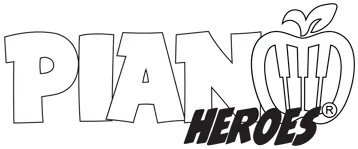Hello and welcome to a series of blog posts exploring the questions piano teachers often ask. One of them is about licenses. Consider this blog post a self-starter guide to the topic of licensing.
License vs Certificate
Occupational licenses are sometimes confused with professional certificates. It may be because some organizations refer to the licenses as certificates and vice versa. However, an occupational license grants you permission and the scope for your practice when certification is voluntary and serves as proof of your competency. In comparison, an occupational license for piano teaching may or may not be a legal requirement to operate in your area. However, various certificates do help your home-based piano studio to stand out from the crowd. And make both the curriculum and your self-esteem stronger. Chances are you do not need an occupational license to teach piano from your home. Do you need a business license?
Business
Unless you plan to teach the piano for leisure, you should consider registering and operating a piano studio as a business. A business license makes your piano studio an official business in some areas. It is mostly about taxation and expenses. In some countries, a business license is not required to claim your expenses from the piano studio. Check with your local tax agency!
Any registration of the local business will ask you for a unique name. And since naming might be tedious, here is another guide for you!
Once you have the unique name, you start building a brand for your piano studio. But before that, what about permits?
Permits
Special zoning permits or waivers are sometimes required. For example, suppose your students or parents share parking spots or driveways with your neighbours. Without proper licenses, you may end up paying unnecessary fines. Another example is the home occupancy permit. Note that the rules and regulations may vary between countries and municipalities. Therefore, it is always a good idea to check city and property bylaws before you start operating your home-based piano studio. If you must follow specific rules or bylaws, ensure your customers are aware of them. And your operational schedule and studio policies reinforce it. Now, what if something terrible does happen?
Liability
Imagine a student slipping and falling, breaking her leg or getting a concussion on the doorstep of your piano studio. Can your student sue you? Can your student sue your piano studio? Who’s responsible for the medical charges? Situations like this are not rare at all. And the difference between an experienced business owner and an amateur is how you handle it. First, it is always a good idea to have proper liability insurance before you start teaching in your home. And if legal proceedings happen and things go south, your business assets are separate from your personal ones. Let’s wrap up!
All in All
We hope you have got a better grasp of what licensing is! And this article cleared some of the confusion around it for you. You now understand that legal requirements vary from country to country and municipality to municipality. So contact your local tax agency, and review your city standards and local bylaws. After all, you are starting a business. Following the rules from the beginning will help you to build a successful and long-lasting home-based piano studio!

